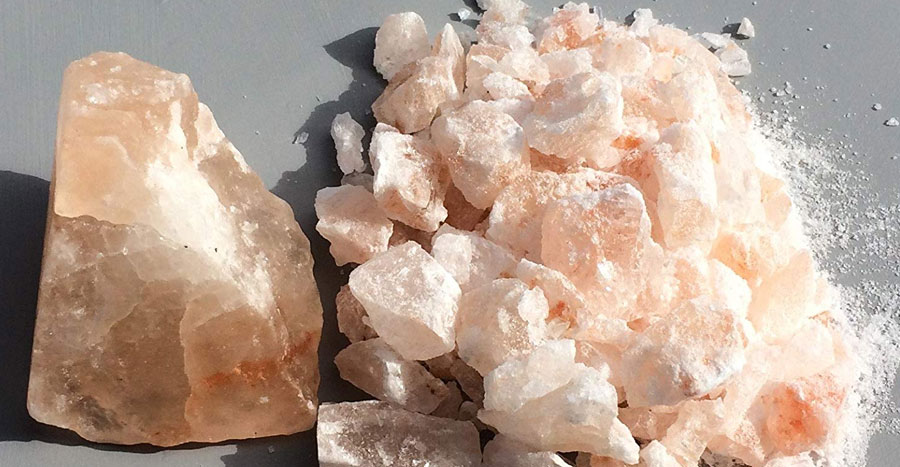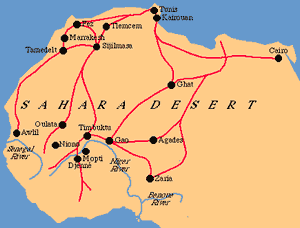Salt: The Rock That Built Empires

Salt: The Rock That Built Empires
Discover the fascinating history of salt, the mineral that once rivalled gold in value. Learn how salt shaped trade routes, built African empires like Mali and Ghana, and powered economies across the world before refrigeration made it ordinary.
These days, salt is that little thing you sprinkle on your jollof, fries, or popcorn without a second thought. It’s cheap, it’s everywhere, and half the time, doctors are even warning us to cut down on it. But go back a few hundred (or thousand) years, and salt wasn’t just seasoning. It was wealth, it was power, it was the oil of its time, shaping economies, driving trade routes, and literally deciding which kingdoms thrived or collapsed. Salt wasn’t just on the table; it was the table.
Why Salt Was Such a Big Deal
You might be thinking: “Why salt though? It’s just a rock.” Well, here’s the thing: before refrigerators and freezers, salt was the MVP of food preservation. It kept meat from rotting, fish from stinking, and food supplies lasting through seasons. Without salt, armies couldn’t march, traders couldn’t travel long distances, and cities couldn’t survive droughts. Add to that the fact that the human body literally needs salt to function (without sodium, your muscles and nerves don’t work properly), and suddenly, this simple mineral wasn’t so basic anymore. Salt was survival. Which meant whoever controlled salt controlled life.
Salt in West Africa: White Gold
Nowhere is salt’s importance more obvious than in West Africa during the days of the Ghana, Mali, and Songhai empires.
• The Sahara Desert was filled with massive salt mines, especially in places like Taghaza and Taoudenni (in modern Mali).
• These salt slabs weren’t small shakers; they were huge blocks, carried across the desert on camel caravans. Each camel could carry 300 pounds of salt. Picture a desert highway with thousands of camels hauling literal rocks.
• Meanwhile, further south, regions were rich in gold but didn’t have enough salt. Cue one of history’s greatest trade deals: salt for gold. It was so serious that in some areas, salt was worth its weight in gold, sometimes even more. Imagine walking into a market and someone saying, “That chicken will cost you two pinches of salt.” Salt was currency. Salt was status. Salt was life.
Salt Roads: The Highways of Wealth
The salt trade didn’t just create markets; it created entire trade routes that shaped Africa and beyond.
• The Trans-Saharan Trade Routes connected West Africa’s gold and salt to North Africa’s markets. From there, the goods flowed into Europe and the Middle East.
• Salt caravans sometimes had thousands of camels, stretching for miles. They were basically the cargo ships of the desert.
• Cities like Timbuktu and Gao rose to prominence because they were crossroads for this trade, turning into bustling centres of learning and wealth. Without salt, there would be no Timbuktu legends, no Malian riches, and no thriving trans-Saharan economy.
Salt and Empires
The great West African empires, Ghana, Mali, and Songhai, literally rose on the back of the salt and gold trade.
1. Ghana Empire (6th–13th century). Controlled the salt-gold trade routes. Taxed caravans so heavily that they made a bank just from customs.
2. Mali Empire (13th–16th century). Mansa Musa, the richest man in history, ruled during the height of salt-gold wealth. Without salt, there’d be no golden pilgrimage story.
3. Songhai Empire (15th–16th century). Took over after Mali and continued the tradition, with cities like Gao and Timbuktu booming thanks to the salt’s trade value.
Salt was the economic engine under the hood of these empires.
Salt Beyond Africa: A Global Rock Star
It wasn’t just Africa. Salt shaped history everywhere:
• China. Built massive salt works as early as 6000 BC. Salt taxes funded dynasties for centuries.
• Rome. The word “salary” actually comes from “salarium” Roman soldiers were partly paid in salt. Imagine working a job today and getting your paycheck in bags of iodised salt.
• Medieval Europe. Salt was essential to preserving fish, which was a staple during religious fasting seasons. Whole towns (like Salzburg in Austria) got rich off it.
Salt wasn’t just an African phenomenon; it was a global obsession.
When Salt Lost Its Crown
So why isn’t salt a big deal anymore? A couple of reasons, but we will focus on two reasons:
1. Refrigeration. Once humans figured out how to keep food fresh without salt, its monopoly collapsed.
2. Industrial Production. Modern mining and production made salt cheap and abundant. It went from luxury to a common good.
Today, salt is everywhere, so common that we barely notice it. But its history is still etched in the cities, empires, and cultures it built.
Why Salt’s Story Still Matters
1. Perspective. The next time you’re tossing salt over your fries, remember people once crossed deadly deserts for this stuff, yeah, they went to war for it.
2. Economics. Salt shows how something “ordinary” can be the foundation of global wealth and power, depending on context.
3. Culture. From Roman salaries to West African empires, salt isn’t just history; it’s identity.
Salt may have lost its throne in today’s world, but it still deserves respect.
After all, it’s the rock that built empires.
The Takeaway: Never Underestimate the Basics
Salt’s story is a reminder that history isn’t always about flashy treasures. Sometimes, it’s about the everyday things we take for granted. Salt may seem small, but it held the power of life and death, shaped kingdoms, and carried entire economies on its crystal shoulders. So when you sprinkle it on your next meal, maybe whisper a little thank you. That pinch of salt once moved caravans, funded empires, and literally flavored the course of history.


